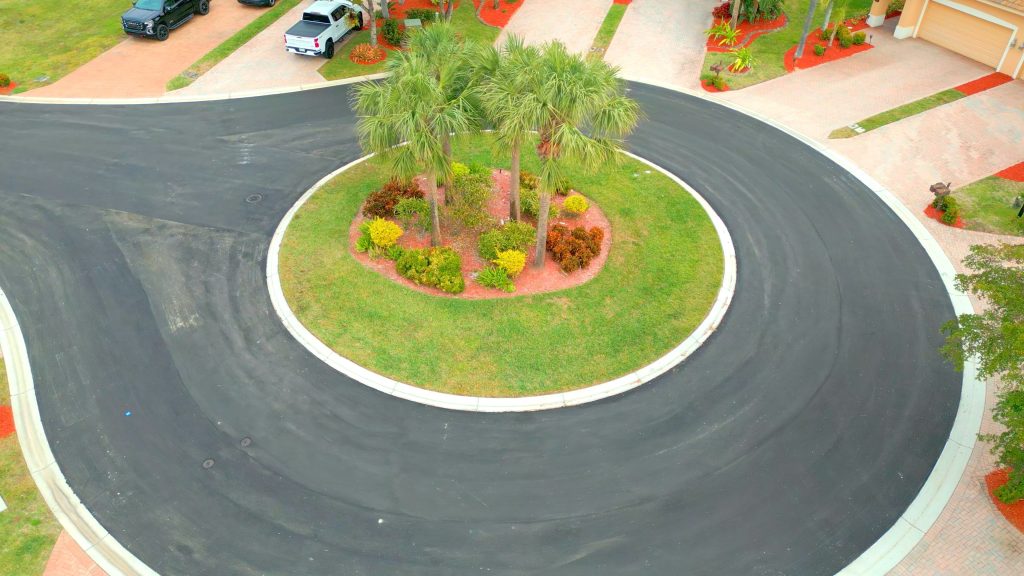The majority of seasoned property and facility managers understand that no extensive asphalt projects should be undertaken in the winter such as paving, sealcoating, or line striping.
However, new property and facility managers may not understand why this is so. The answer is, in this case, a significant investment could also lead to a big loss.
We won’t dive into the specifics of each topic with lengthy and tedious details, but we will help you understand why it’s a bad idea to seal coat asphalt in cold weather. The Pavement Group offers expert sealcoating services in Boston, MA. Click here to get a free quote now.
Moisture
Moisture is the biggest reason for delays in sealcoating projects. The climate of the place you live in can affect your asphalt projects and maintenance. Winters are generally wet whether due to rainfall, snowfall, or humidity.
You can’t apply a seal coat to a wet surface. A typical sealcoating project requires at least two coats (one needs to dry off for the other to be painted), which means the air and ground should be dry throughout the process.
The ground should not be wet for at least a day before the sealant is spread on the asphalt. Sealants do not adhere well to wet surfaces, so it would essentially be a waste if spread on a wet surface.
Temperature
Sealcoating depends significantly on temperature. The ground and surroundings’ temperature should be 50°F or more while the seal coat is being cured.
During winter, the days are shorter, so sunlight is scarce; even if you manage to apply the first coat and it sets, temperatures may drop at nightfall. And who is to say even the next day the weather will be favorable for the second coat? Therefore the risk of leaving the project incomplete is too great.
Cost
Since curing takes longer in winter, the seal coat needs to be spread quickly to take advantage of the brief sunlight, which means more workforce is required. Also, maintaining the temperature artificially or drying the ground of moisture requires excess equipment and work, which means greater cost.
So financially and otherwise, it is smarter to carry out the sealcoating process anytime other than during winters or monsoon. The best time for sealcoating is summer because the temperature and moisture levels are ideal.
Plan your repair and sealcoating projects accordingly. Get all the work done in spring, summer, or autumn, so minimum damage is done to the asphalt pavement in winter.
Are you searching for a professional asphalt paving company? Opt for The Pavement Group for matchless, cost-effective, and hardwearing solutions to your asphalt woes.
We cater our services to parking lot managers and commercial property owners in Boston, MA. If you want to have your parking lot seal coated to extend the life of your asset, click here to get a free quote for it now.


